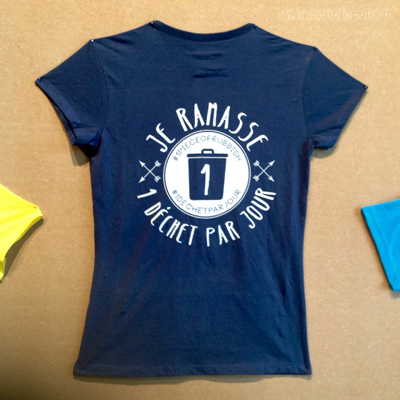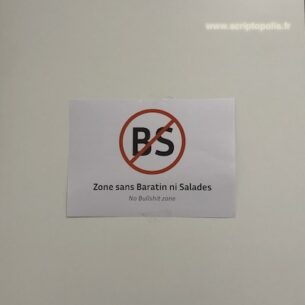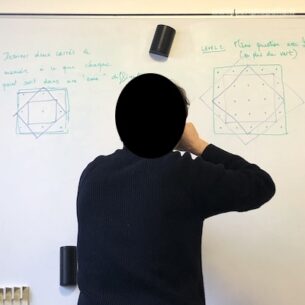Clothes

Marseilles, June 2017.
Sociologists have taught us that clothes are signs: they indicate, because of their choices, a professional role, groups of belongings or social positioning. But others have to interpret these signs, they must know what the gray suit and the short-sleeved shirts, the bow tie and the pierced jeans point to.
Since then, flocking techniques have become commonplace and cheap, allowing everyone to co-build their garment, any image in a computer file can be reproduced on fabrics. Depending on moods, places and roles, and much more reversible than body tattoos, flocked clothing is more than a sign, it has become a message.
This blue T-shirt had to be proudly worn on a beach filled with the most diverse waste or in a city invaded by garbage. But it is now exhibited in a collection for a museum as a testimony of this militant action. Pinned not far away from tables showing the evolution of urban waste tonnage, it becomes again a sign, the one of our naked impotence.






